Focus on funding and implementation for EU cities - by Claudio Bordi
Edited on
27 May 2022Ad-hoc expert Claudio Bordi explains the most suitable funds for RiConnect projects and how to orient the plans to get the funding, explaining the broad context of European funds and showing resources to find specific funding calls.
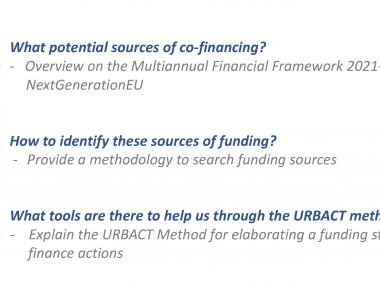
To address current global challenges, a new phase of the European Urban Agenda has been launched through the Ljubljana Agreement and its multiannual work program adopted by EU ministers on 26 November 2021. The goal is greater access to the financial instruments of the European Union for the sustainable development of urban areas, associating the European Commission, national ministries, local authorities and other key stakeholders. Therefore, several EU funds are available today to support cities, including advice on implementation and innovation through pre-commercial procurement tools (PCPs) and public procurement of innovative solutions (PPIs) in the field of new digital technologies (ex: block-chain, intelligence, big data, virtual reality, etc.). European Assistance for Innovation Procurement (EAFIP) is particularly dedicated to public procurers.
In light of the above, a team of experts from the RiConnect network conducted a comparative analysis on financial opportunities for the sustainable development of urban areas, in order to transfer the results of this analysis and related knowledge to the partner cities, enabling them to identify and evaluate the different EU tools for the implementation of their action plans that have been produced as part of the RiConnect project. To this end, technical assistance was then carried out through various webinars aimed at raising awareness among RiConnect partner cities on the strategic importance of synergizing the funding programmes managed directly by the European Commission ("Direct Funds"), with the "European Structural and Investment Funds "("Indirect Funds"), such as the Regional Funds of the European Development Fund, the European Social Funds, the Cohesion Funds, the EU Agricultural fund for rural development and the European Maritime and Fisheries Fund.
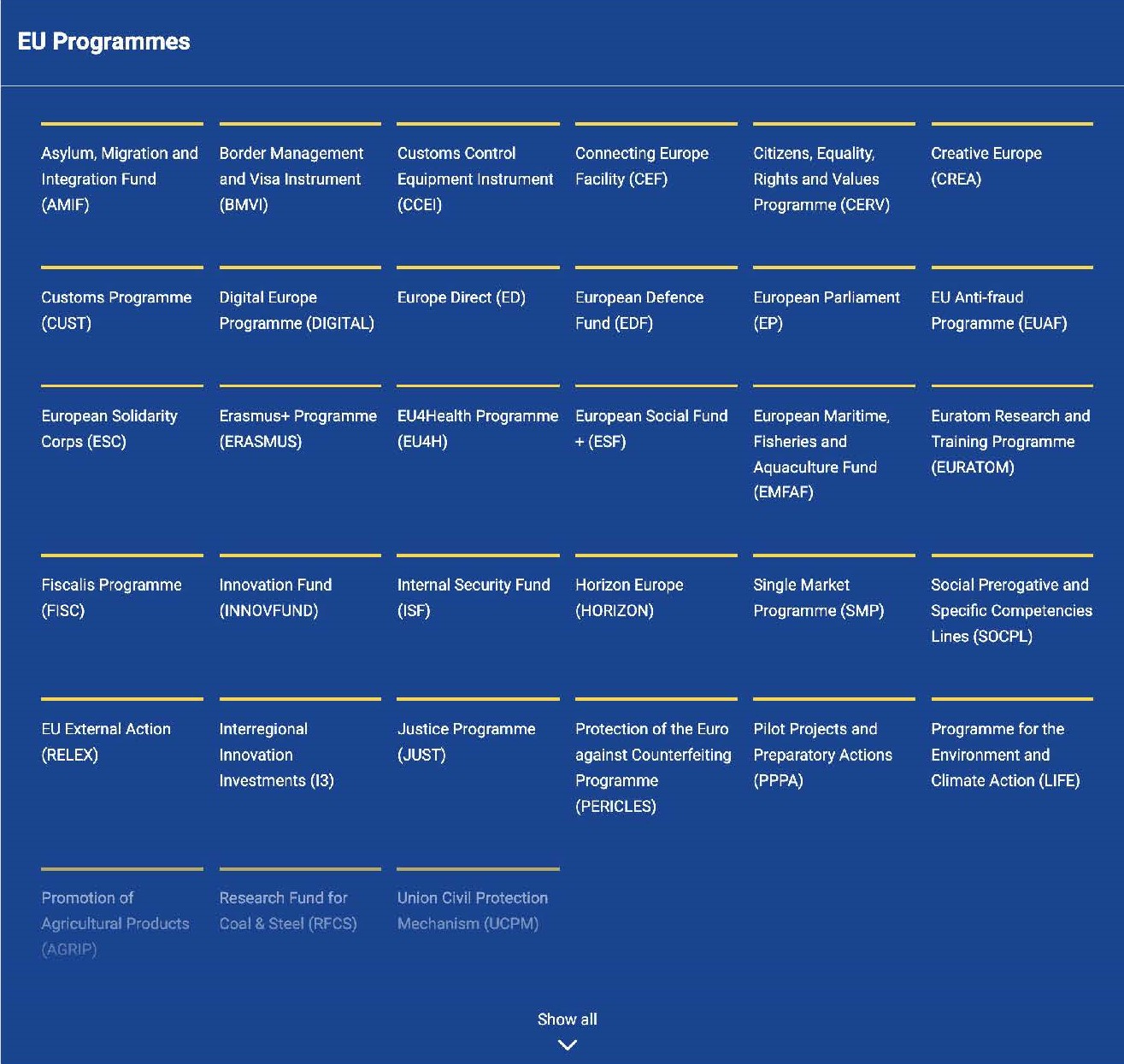
As for the Direct Funds, the most interesting initiatives were analysed:
- Horizon Europe, the European Union framework programme for research and innovation for the period 2021-2027, following Horizon 2020;
- LIFE Programme, the EU funding instrument for the environment and climate action;
- Urban Innovation Action, Initiative of the European Union promoting pilot projects specifically focused on urban sustainable development;
- Climate KIC, Knowledge and Innovation Community;
- EUKI, European Climate Initiative financing programme;
- EIT Urban Mobility, an initiative of the European Institute of Innovation and Technology;
- JPI Urban Europe, the knowledge hub for urban transitions;
- CEF - Connecting Europe Facility, EU fund for infrastructure investments across the EU in transport, energy, digital and telecommunication projects.
Furthermore, the very useful study conducted by EUROCITIES in the field of sustainable urban development was shown to complement the above analysis.
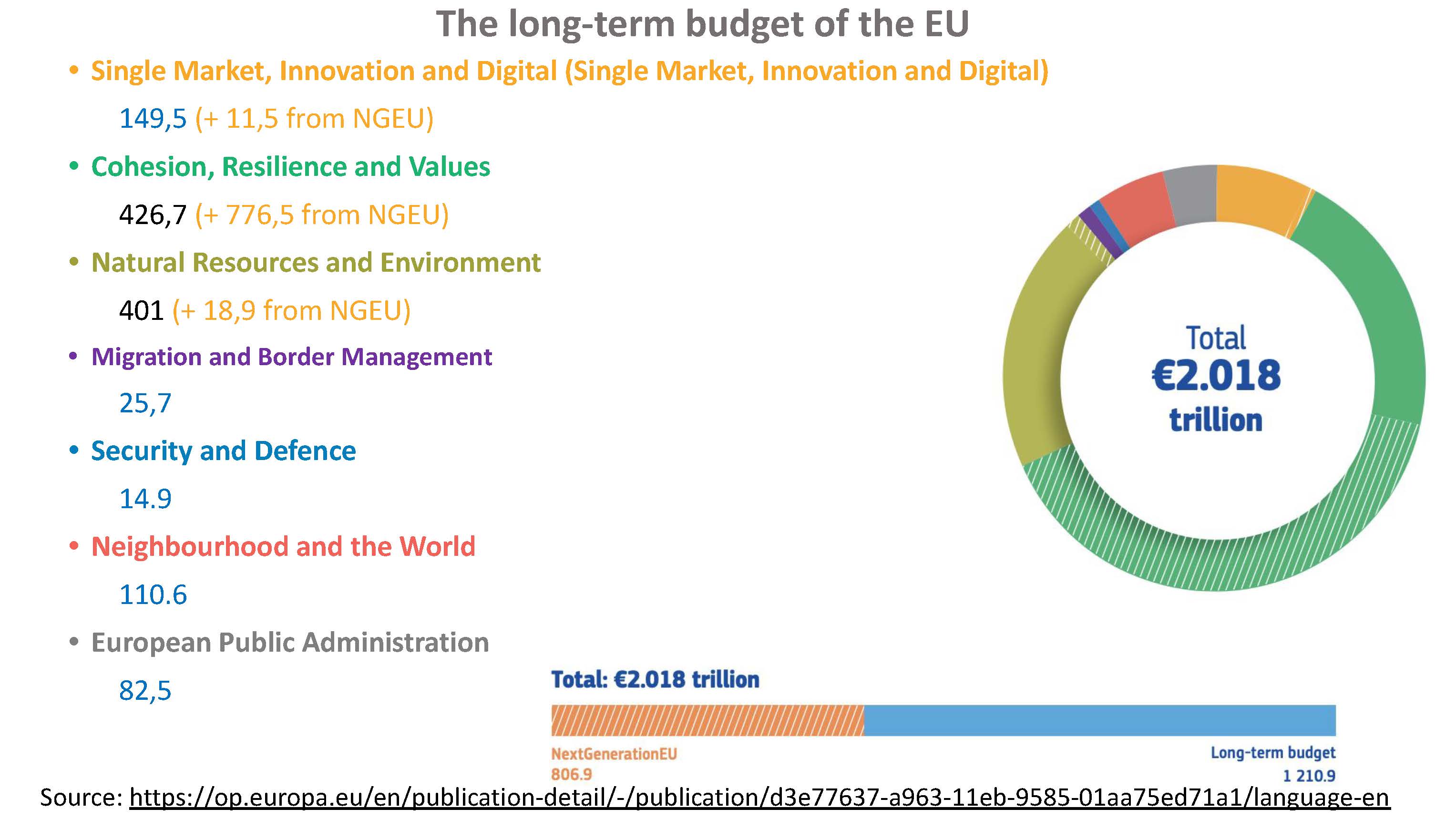
Examples and ideas on financial engineering measures and tools made available by the EU for cities were also shared with the RiConnect partners, through the analysis of the InvestEU Fund for the 2021-2027 programming period which is the core of the Plan of Investments for Europe, aimed at stimulating long-term economic growth and competitiveness in the European Union, by combining EU funding into a single programme, in the form of loans and guarantees. This fund is structured around four areas of intervention:
- sustainable infrastructure
- research, innovation and digitization
- SMEs
- social investments and skills.
In this context, other important complementary tools were examined which are:
- the Portal of European investment projects;
- the European Investment Advisory Hub (PECI) which the European Commission intends to integrate with 13 different advisory services currently available in a one-stop shop. The aim is to provide technical support and assistance in the preparation, design, structuring and implementation of local projects and actions, including capacity building.
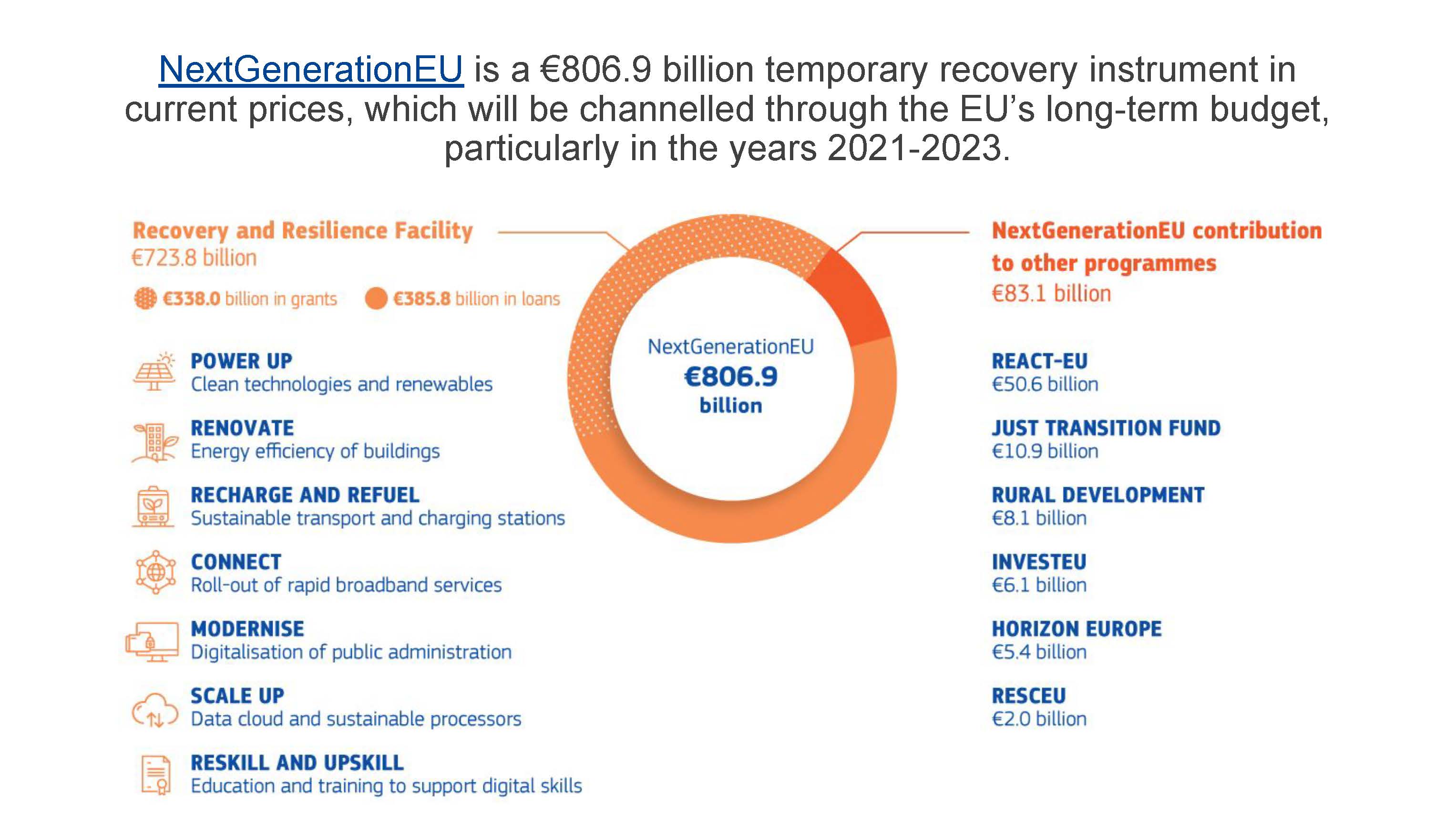
The aforementioned initiatives and tools aimed at responding to the challenges of a transition towards a more sustainable Europe are part of the budget for the 2021-2027 programming period which corresponds to 1.074 billion euros at 2018 prices, in addition to the Next Generation EU recovery instrument. which amounts to 750 billion euros at 2018 prices, according to the following six priorities:
1. European Green Deal, to make Europe become the first climate-neutral continent;
2. A Europe ready for the digital age, to ensure more opportunities thanks to a new generation of technologies;
3. An economy at the service of people, working for social equity and prosperity;
4. A stronger Europe in the world, strengthening its leadership role at global level;
5. Promote the European way of life, protecting EU citizens and EU values;
6. A new impetus for European democracy, cultivating, safeguarding and strengthening EU democracy.
The technical assistance to the RiConnect partner cities ensured by the experts team also included practical exercises which were conducted remotely to show how it is possible to combine direct and indirect funds (e.g. structural and investment funds, ESI funds and the funds managed by both National and Regional authorities, such as NOPs, National Operational Programmes, ROPs, Regional Operational Programmes. At the same time, other exercises were carried out jointly to show how the related instruments and tools can be searched, browsing the dedicated web pages of the General Directorates of the European Commission and the concerned European agencies, examining the relevant Calls for proposal and Guidelines (ie INEA - The Innovation and Networks Executive Agency, National Agencies, bodies set up by the European Commission and national governments for the management of some programmes).
In light of the heterogeneity of the aforementioned programmes, the experts team highlighted the need to promptly verify the modalities of participation for each European programme, which usually require a transnational partnership and the commitment of the partners to co-finance the proposed initiatives in variable percentages, according to the type of programme and project.
To sum, the RiConnect partner cities have well acknowledged how the synergy among the diverse European funds is crucial to concretely and more effectively implement the action plans they have developed along RiConnect project, in line with the European Urban Agenda, thus maximizing the efforts to implement the cohesion policy of the European Union, reduce the economic, social and territorial disparities among the different European regions.
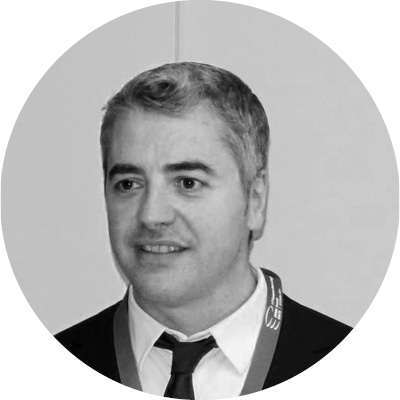 Claudio Bordi is an architect and urban planner based in Rome. With an extended experience of over 20 years, his expertise focuses on international cooperation and EU-funded projects in the fields of urban heritage preservation and local sustainable development, among others. He has been Project manager of the URBACT Ru:rban network, and he has supported the RiConnect network as Ad-hoc expert on funding and implementation.
Claudio Bordi is an architect and urban planner based in Rome. With an extended experience of over 20 years, his expertise focuses on international cooperation and EU-funded projects in the fields of urban heritage preservation and local sustainable development, among others. He has been Project manager of the URBACT Ru:rban network, and he has supported the RiConnect network as Ad-hoc expert on funding and implementation.
 Submitted by Mikel Berra-Sandín on
Submitted by Mikel Berra-Sandín on
